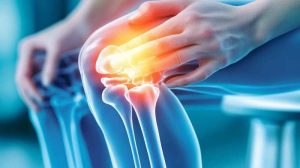Chronic pain can be challenging to navigate because it affects the quality of life and impedes the ability to complete day-to-day activities successfully. Pain that is persistent and lasts for longer than three months is considered chronic. This type of pain can happen due to injury, auto-immune diseases, arthritis, damage to the nervous system, and underlying health conditions. According to the Centers for Disease Control (CDC), approximately 50% of the adult population in the United States is grappling with some chronic pain. However, some things can be done to manage living with chronic pain without going it alone.
How Chronic Pain Affects Quality of Life
Because Chronic pain affects over 50% of Americans, it’s no wonder that quality of life is impacted. A study conducted by researchers at Midwestern University in Phoenix, Arizona, reveals that chronic pain can lead to isolation, emotional stress, including anxiety and depression, as well as significant physical impairment. The key to normalcy and discovering coping mechanisms starts with your healthcare provider. The study also shows that the healthcare providers that failed to take their patient’s complaints seriously caused them to resort to substance abuse via opioids.
Based on this information, the healthcare profession must take note of the seriousness of the matter so that better strategies can be employed. This approach is a must for those dealing with chronic pain because of its impact on mental health. For Example, those who have pain resulting from an autoimmune disease are more likely to have increased levels of inflammatory cytokines. Inflammatory Cytokines are proteins responsible for signaling the body’s response to inflammation and can affect the parts of the brain responsible for controlling a person’s mood or energy.
More About the Effects of Chronic Pain
The symptoms associated with an overabundance of cytokines are likened to that of depression and anxiety. That’s why autoimmune illnesses like Lupus and Multiple Sclerosis must be taken more seriously. The ramifications that chronic pain has on mental health are significant because it can disturb sleep and make it challenging to work, go to school, or complete an ordinarily simple task. However, it is argued that the connection between mental health and chronic pain runs even deeper than that. Here’s what experts are saying about it.
Effects On Mental Health

Chronic pain and the effects it has on mental health have a substantially higher connection than most are aware of. Those who have experienced pain from an autoimmune disease, injury, or arthritis have been proven to be at a much greater risk for developing a mental health disorder. Untreated chronic pain hinders sleep, and this inevitably leads to depression and anxiety. Anywhere from 35-45% of all chronic pain sufferers are at risk for this, according to the Anxiety and Depression Association of America (ADAA), according to a recent study.
There’s evidence to suggest that those with chronic back pain, fibromyalgia, migraines, and osteoarthritis are more susceptible to altered mental health. Mental Health America suggests that there is a direct link between chronic pain sufferers and mental health; next, this theory was tested using functional imaging. Functional imaging uses a magnetic resonance imaging (MRI) machine to test the brain’s emotional responses to chronic pain. Data taken from the Mental Health America screening program revealed that out of 160,000 people with chronic pain, 47% indicated a mental health disorder.
The screening program also revealed that those surveyed were disappointed in their physicians’ approach to treating them. Therefore, experts recommend there should be more engagement in asking patients with chronic pain about their mental health. Decision-making regarding treatment strategies should be a shared effort between patient and physician to optimize success. The information pulled from this study will hopefully be a gateway to promoting more awareness of strategies, but other things can be done.
Strategies for Improving Chronic Pain

So, what can experts do to prevent how the treatment of chronic pain is strategized, and how can these strategies be used to manage it more effectively? Understanding the connection between chronic pain and emotions and asking questions is vital. Ask about other treatment strategies beyond medication or surgical procedures that only treat half the problem. Some of the most effective treatments include physical therapy, massage, regular exercise, relaxation techniques like tai chi, a new hobby, and acupuncture.
According to the American Psychological Association (APA), physical therapy may be the best option. This is because it targets the emotional part of overcoming the pain to learn how to complete daily tasks once again. Your healthcare provider may also suggest cognitive behavioral therapy as a coping strategy. Cognitive behavioral therapy (CBT) will help change how you think and how your body reacts to pain to counteract any opposing thoughts or emotions you may have. Data pulled from several studies confirm that those dealing with chronic pain benefited from cognitive behavioral therapy.
Improvement Strategies Continued
Researchers noted that cognitive behavioral therapy had a highly positive impact on reducing pain and the everyday stress that comes with it. Combining cognitive behavioral therapy with other methods revealed a significant decrease in the level of intensity experienced. Doing this improved sleep quality and increased energy making it easier to complete daily tasks. These strategies make a difference in treating chronic pain and redefining how healthcare providers will treat it in the future.
Final Thoughts
Living with chronic pain from injury or an autoimmune disease can significantly impact quality of life and mental health. But, seeking physical and cognitive behavioral therapy to manage the pain and make mobility easier can be the answer to boosting every aspect of day-to-day life. Asking questions is critical, and so is learning you’re not alone on this journey, making coping easier. So ask your healthcare more questions about these treatment strategies and if they’re right for you.
Disclaimer: This article provides information that does not replace physician advice. Please contact your doctor if you have any questions or concerns.
For More Great Content
Are you desiring top-tier content that covers everything? Total Apex covers everything from thrilling sports and intoxicating entertainment news to gaming tips and professional betting advice. Delve into our no-fluff articles to stay ahead of the game with the latest sports action, uncover the hottest trends in entertainment, and get the latest scoops in the gaming industry that will take your experiences to the next level.
Finally, our betting advice will give you a decisive edge over the competition and increase your odds of beating the books. Whether you want to stay updated or gain a competitive edge, Total Apex is your one-stop shop for all things compelling and relevant. Don’t forget we cover Fantasy Sports, too!
Check out all our sites: Total Apex Sports, Total Apex Fantasy Sports, Total Apex Entertainment, Total Apex Sports Bets, and Total Apex Gaming. Out of the ashes of obscurity will rise a beast. Always remember to Respect The Hustle! Follow us on Twitter/X @TotalApexSports to stay informed.









